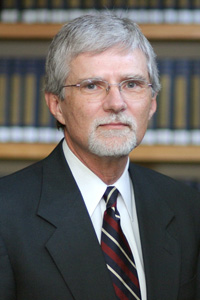Head Covering for Public Worship (by Michael Barrett)

Dr. Michael Barrett is Vice President for Academic Affairs/Academic Dean and Professor of Old Testament at Puritan Reformed Theological Seminary. He is a minister in the Free Presbyterian Church of North America. Formerly, Dr. Barrett served as president of Geneva Reformed Seminary. He earned his doctorate in Old Testament Text with a special focus on Semitic languages. For almost thirty years, he was professor of Ancient Languages and Old Testament Theology and Interpretation at Bob Jones University. Dr. Barrett has had an active role in the ministry of the Free Presbyterian Church since its inception in North America. He is a member of the Evangelical Theological Society and has published numerous articles in both professional and popular journals. He contributed to and served as Old Testament editor for The Reformation Heritage KJV Study Bible. Dr. Barrett and his wife Sandra have two sons and five grandchildren. Dr. Barrett’s hobbies include hunting and thinking about hunting.
[In addition to reading below, you can view the original PDF of this booklet here.]
Introduction
The Word of God is the only rule for faith and practice. Christian conduct must be the reflection of biblical standards rather than expedient conformity to changing style or habit. This principle is applicable to every area of Christian life, not the least of which is worship. The Westminster Confession of Faith, the adopted sub-standard of the Free Presbyterian Church, makes a significant statement regarding religious worship: “The acceptable way of worshipping the true God is instituted by himself, and so limited by his own revealed will, that he may not be worshipped according to the imaginations and devices of men” (XXI.i). 1 Corinthians 11 establishes some of the divinely revealed guidelines of acceptable worship. In this chapter, the apostle Paul deals with two essential aspects of public worship: head covering for women and proper observance of the Lord’s Supper. Unfortunately,the regulations concerning head covering have either been misinterpreted, or through expediency, relegated to the sphere of local Corinthian custom which has no applicability to modern, American Christianity. It is the position of the Free Presbyterian Church that the shifting customs of society do not influence or abrogate the imperatives of Scripture. Therefore, the mandate of 1 Corinthians 11 that women must worship with covered heads is as binding today as it was in the first-century church. Read more
- Share
- Like
- Tweet
- Pin It
- Digg
- Delicious
- Tumblr
- VKontakte
- Flattr
- Buffer
- Love This
- Odnoklassniki
- Meneame
- Blogger
- Amazon
- Yahoo Mail
- Gmail
- AOL
- Newsvine
- HackerNews
- Evernote
- MySpace
- Mail.ru
- Viadeo
- Line
- Comments
- Yummly
- SMS
- Viber
- Telegram
- Subscribe
- Skype
- Facebook Messenger
- Kakao
- LiveJournal
- Yammer
- Edgar
- Fintel
- Mix
- Instapaper
- Copy Link








